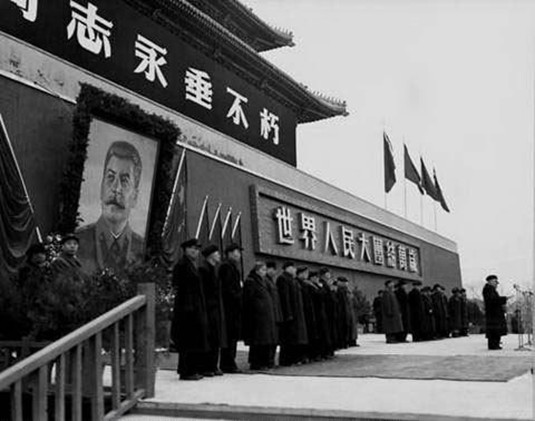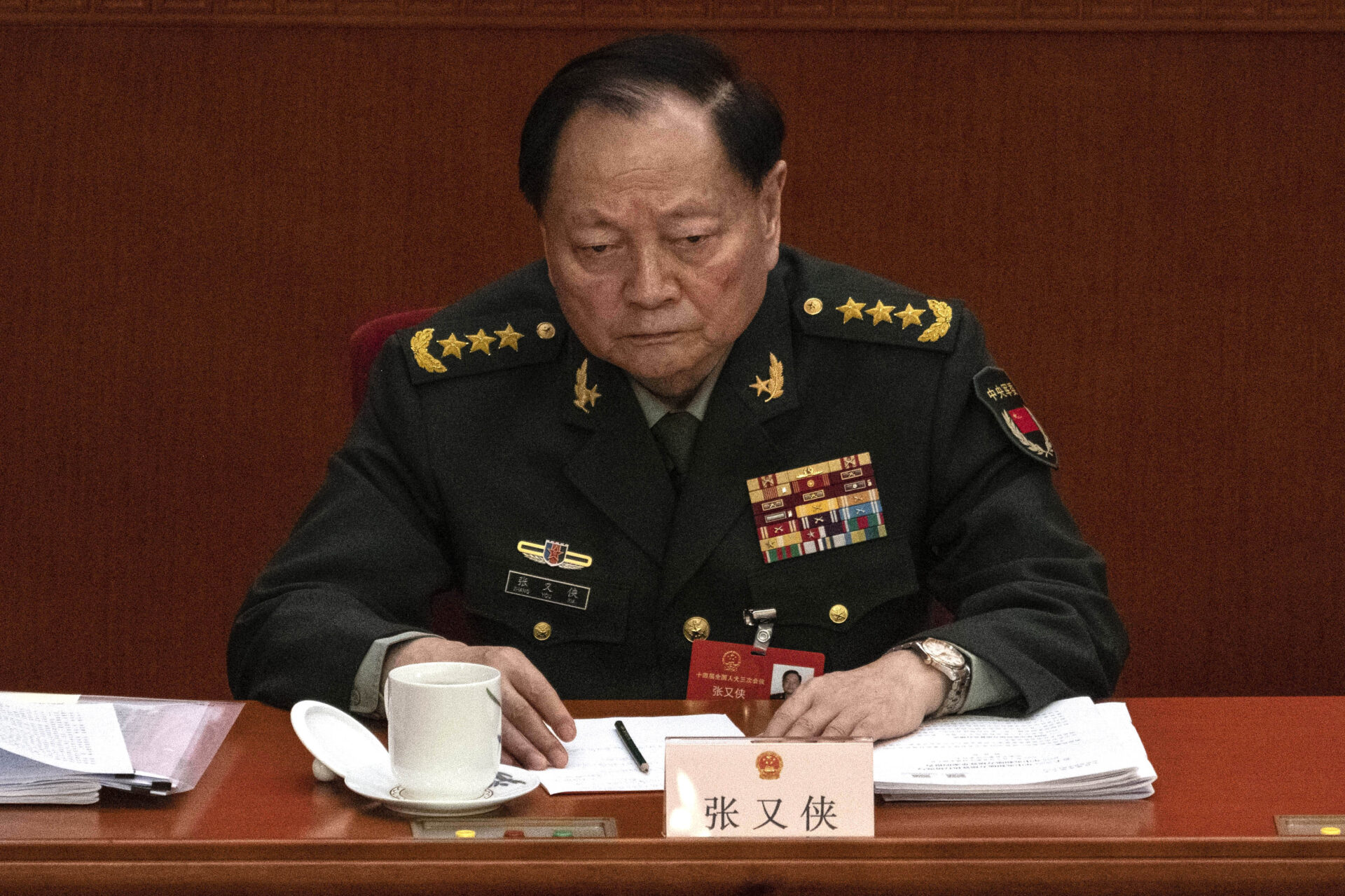The Chinese Perspective on the Recent Astana Summit
The Chinese Perspective on the Recent Astana Summit
A series of radical changes have taken place in Central Asia since the beginning of this year. Termed by some as the “color revolutions,” these political shifts have been discussed alternately as “regime changes” on the one hand, and extremist-fueled turmoil on the other. Whatever their nature, these developments put pressure on the member states of the Shanghai Cooperation Organization (SCO). Thus, it became a priority on the agenda of the Astana summit to strengthen security cooperation within the SCO framework, so as to meet these new challenges and threats. The recent SCO summit in Astana demonstrated this more active posture in taking responsibility for security in Central Asia.
The summit began with a review of the documents already signed by the SCO members, with special emphasis on the implementation of official measures taken thus far. All of the delegates assessed positively the establishment of the SCO permanent institutions in 2004, namely the SCO Secretariat in Beijing and the Regional Anti-terrorism Structure (RATS) in Tashkent, and suggested that the RATS Council be further enhanced for more effective anti-terror campaigns. Meanwhile, the assembled heads of state underscored the importance of taking the necessary measures to fulfill agreements that were reached at the second meeting of SCO member states’ secretaries of national security councils in Astana on June 2. It was agreed that a new system would be set up for SCO members to keep their permanent representatives at the anti-terror structure, so as to promote the implementation of the Shanghai Convention on Combating Terrorism, Separatism and Extremism. It was also stated that cooperation on drug trafficking should become a focus as defined by the previous SCO agreement on fighting the illegal trafficking in narcotics and their precursors. Members hope to step up their participation in the international effort to form an “anti-narcotics belt” around Afghanistan, in the formulation and realization of new special programs, and in providing assistance for Afghanistan to stabilize its social, economic and humanitarian situation.
Also, members took the initiative in shouldering the responsibility for security in Central Asia. The heads of state decided to significantly increase security cooperation on the basis of the achievements made so far, including: promoting close cooperation among the diplomatic, foreign economic, law-enforcing, national defense and special-mission authorities of the member states; working out effective measures and institutions to respond collectively to those developments that threaten the regional peace, security and stability; coordinating the security-ensuring laws and regulations in the member states; cooperating in researching and developing new technologies and equipment for coping with new challenges and threats; establishing new effective structures in mass media to deal with new challenges and threats; combating the smuggling of weapons, ammunitions, explosives as well as drugs, and fighting organized transnational crimes, illegal immigration and mercenary troops activities; giving special attention to the prevention of terrorists using weapons of mass destruction and their launching vehicles; taking precautionary measures against cyber-terrorism; and drafting uniform approaches and standards for monitoring the financial flow related with those suspect terrorist individuals and organizations. The heads of the state signed the Vision of the SCO Member States to Combat Terrorism, Separatism and Extremism, which aims at improving the efficiency in security cooperation, and increasing the relevancy of anti-terror activities.
Thirdly, the recent summit meeting stressed that security cooperation be put on the basis of comprehensive security. The heads of the states pointed out, “Such common efforts should be of a comprehensive nature, and be able to assist the member states to effectively protect their territories, citizens, livelihoods and key infrastructure sectors, so that they are free from new challenges and threats, thus creating the necessary preconditions for sustainable development and poverty elimination.” [1] The leaders believe that, in preventing and eliminating the various technical disasters which are now a significant component of the new threats, it has become increasingly urgent to protect and further develop infrastructure, particularly the transportation infrastructure. They also believe that SCO member countries should construct multilateral structures to monitor possible disasters and their consequences, exchange information and analysis, and create necessary legal and institutional conditions for joint salvaging, including promoting interoperability in terms of personnel training, dispatching agents and equipment deployment. To these ends they declared: “The Shanghai Cooperation Organization will make constructive contribution to the international efforts to safeguard the land, sea, air and space security.” [2] The London bombings that occurred just two days after the summit meeting testified once again to the importance of the consensus reached by SCO leaders in Astana.
Fourthly, this summit meeting has laid more emphasis on promoting economic and cultural cooperation, believing that such cooperation constitutes not only the basis of political and security cooperation, but directly serves the long-term development and interests of future generations in the region. Regarding economic cooperation, the summit meeting made it clear that the main priority for the near future was to put into practice the Plan for Implementing the Outline for the Multilateral Economic and Trade Cooperation among SCO Member States, thus embarking on a pragmatic course of cooperation in trade, transportation, environmental protection, disaster relief, rational use of natural resources, among other things. The prime minister-level council meeting to be held in Moscow this autumn will entail in-depth discussions and work out specific measures for executing the implementation plan aside from defining the fiscal and budget policies.
The SCO Committee of Entrepreneurs, which is now completing its organization, will provide a new source for facilitating greater economic cooperation within the SCO framework. The heads of the state also decided that all sides involved would accelerate the establishment of the SCO Development Fund based on consensus, intensify the inter-bank cooperation including the formation of banking consortiums, while exploring various cooperative molds by employing both multilateral and unilateral means and combining both public and private efforts, and strengthening ties between SCO and international financial institutions, all for the purpose of rendering financial support to cooperative endeavors. It was envisioned that all those efforts would lead partly to the organization of the SCO Development Bank. Significantly, Chinese President Hu Jintao promised at the summit meeting that, “The Chinese side, making it a priority to provide the buyer’s loan of $900 million as promised at the Tashkent summit, has decided to grant even more preferential incentives in the interest rate, time period, and guarantee conditions of the loan, so that the funds can be used as quickly as possible for SCO cooperative projects in the interest of all member countries concerned.” [3] In the aspect of cultural cooperation, this summit meeting proposes that member states should actively cooperate in the SCO framework on education, culture, sports, tourism, and so on. Especially noteworthy is the point mentioned at the meeting, “It is an urgent issue to take preventive measures and make appropriate explanations among the citizens, so as to forestall any attempt to mislead public opinion.” President Hu Jintao remarked at the meeting, “We shall, by effective measures, conduct and deepen our cooperation in culture, disaster relief, education, tourism, journalism, etc. Human resources capacity building should be another area of cooperation, and the Chinese side will set aside a special fund for this purpose enabling the training within three years of 1,500 managers and professionals from other member states.” [4] The first SCO Cultural and Art Festival was held in Astana almost concurrently with the summit meeting. Another important cultural item, the SCO Forum, will be launched this autumn. Its mission is to provide intellectual support to the further development of the organization.
Especially conspicuous has been the following words quoted from the Declaration of Heads of Member States of Shanghai Cooperation Organization: “Today we are noticing the positive dynamics of stabilizing internal political situation in Afghanistan. A number of the SCO member states provided their ground infrastructure for temporary stationing of military contingents of some states, members of the coalition, as well as their territory and air space for military transit in the interest of the antiterrorist operation. Considering the completion of the active military stage of antiterrorist operation in Afghanistan, the member states of the Shanghai Cooperation Organization consider it necessary, that respective members of the antiterrorist coalition set a final timeline for their temporary use of the above-mentioned objects of infrastructure and stay of their military contingents on the territories of the SCO member states.” [5] This is the first time that the SCO demonstrated its position to the whole world that it endorses international participation in the anti-terror cooperation in Central Asia, yet at the same time, believes that Central Asian security should be chiefly the responsibility of countries in the region, notably that of SCO member states.
Three points should be emphasized here. First, these remarks are not specifically targeted at the U.S., but more broadly at “respective members of the anti-terrorist coalition.” Second, the SCO has voiced its views and suggestions, while any final arrangements will have to be worked out through multilateral or bilateral consultations between SCO states and those relevant parties. Third, issues like the military presence or use of infrastructure facilities by one SCO state in another, for example, the use of the military base in Kyrgyzstan by Russia, may be sorted out through coordination within the framework of SCO or CIS either multilaterally or bilaterally.
It is worth pointing out that the main causes for such developments actually rest with those Central Asian states that provided infrastructure and basis to the anti-terror coalition, specifically Uzbekistan and Kyrgyzstan themselves, having nothing to do with any so-called pressure from any other countries, including Russia or China. The reason is easy to see. Even before the 9/11 terrorist attacks, Central Asian states had been threatened by terrorism and extremism supported by the Taliban regime. So when U.S. troops entered Central Asia on a massive scale following 9/11, these countries, out of their concern for national security, took an active part in the war on terrorism and provided facilities and military bases to the anti-terror alliance. However, things are now widely different four years on. While massive military actions in Afghanistan have come to their end, the “color revolutions” endorsed by the Bush administration may leave a chance for a comeback of extremist forces to Central Asia, posing a real threat to the stability and security in the region, Kyrgyzstan and Uzbekistan in particular. Therefore, proceeding from their national interests, these Central Asian states hope that US troops would leave the region.
Obviously, the position of Central Asian states is more a result of U.S. policies than a result of any pressure from China or Russia. If the war on Iraq gave rise to the first rupture within the anti-terror coalition, i.e., the divide between the U.S. and the “old Europe”, then the “color revolutions” have led to the second rupture in the anti-terror coalition, this time being the divide between the U.S. and Central Asian states. This new situation “has forced the Bush administration to examine its complicated balancing act between two prized policy goals: democratization and counterterrorism.” [6]
Notes:
1. Declaration of Heads of Member States of Shanghai Cooperation Organisation, Astana, July 6, 2005.
2. Ibid.
3. Hu Jintao, “Strengthening Solidarity and Cooperation to Promote Stability and Development: A Speech at the Shanghai Cooperation Organization’s Astana Summit Meeting”, July 5, 2005.
4. Ibid.
5. Declaration of Heads of Member States of Shanghai Cooperation Organisation, Astana, July 6, 2005.
6. Thom Shanker and C. J. Chivers: Crackdown in Uzbekistan Reopens Longstanding Debate on U.S. Military Aid, New York Times July 13, 2005.


